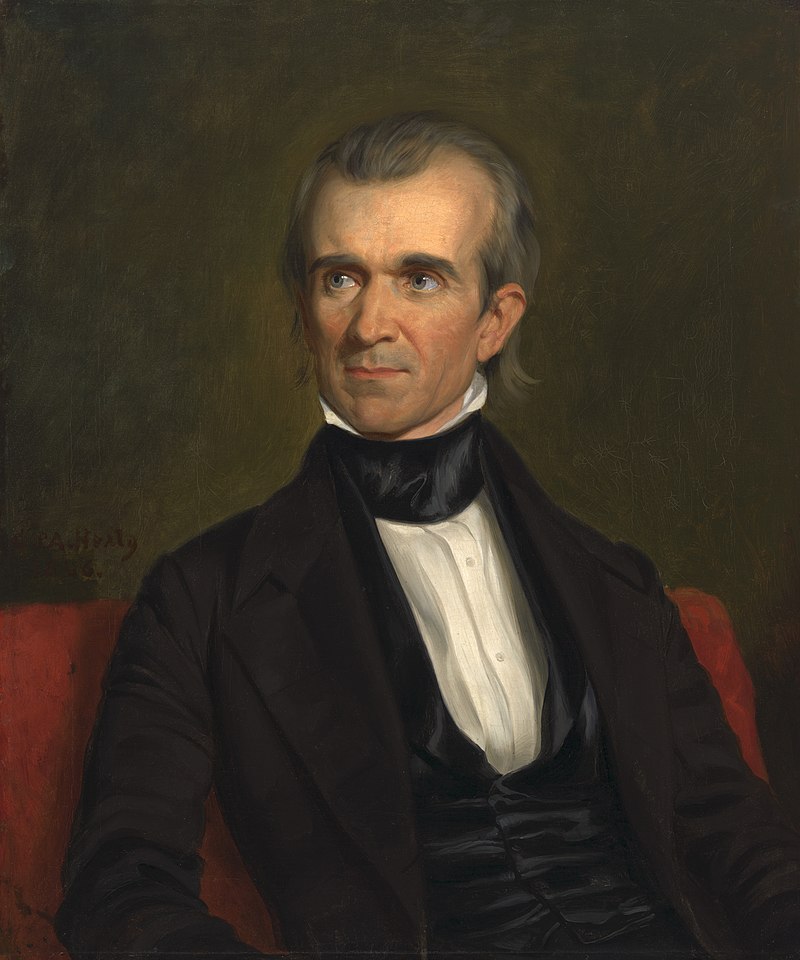James Polk’s household nickname was Jim. He was a very sickly child; however, he learned how to hunt, ride, and shoot with his brothers. He was often out with his father, who surveyed unsettled land in the West. James Polk was initially taught by his parents to read and write. He learned mathematics from his father’s map drawings.
The Polks moved to Mowry County, Tennessee, in 1806. As they settled, they continued farming cotton, corn, and tobacco.
When he was an adolescent around 15 to 16 years old, his parents took him to a famous surgeon from Philadelphia named Dr. Philip Syng Physick due to urinary stones; however, on their way to the doctor, James can no longer endure the pain. Luckily, a nearby surgeon, Dr. Ephraim Mcdowell from Danville, Kentucky, conducted the surgery to him. He used brandy as anesthesia since there are no anesthetics during that time. The operation was successful; however, it possibly resulted in James’ impotence or sterile in the future.
As he recovered from the surgery, he did the shopkeeping with a merchant to do farm work. As an industrious and diligent child, James Polk longed to go to school. His father sent him to Presbyterian Academy in 1813 at the age of 18 and became a member of the Zion Church. Then, he transferred to Bradley Academy in Murfreesboro, Tennessee. In 1816, he was admitted into the University of North Carolina, entered as a sophomore and graduated with honors in 1818.
James Polk went back to Tennessee, where he studied law under a prominent lawyer named Felix Grundy. While pursuing his legal studies, he worked as a clerk of the State Senate. He was mainly responsible for directing the flow of legislative paperwork. His decision to work there became his major stepping stone to a political career.
His hard work paid off after he became a member of the Tennessee House of Representatives in 1823. He served there for two years as the chief legislative lieutenant of Governor William Carroll.
James Polk got elected in the U.S. House of Representatives in 1825 at the age of 29. His first speech urged the abolition of Electoral College, where a state receives a certain number of electors based on the number of representatives in Congress.
Andrew Jackson was a close family friend of the Polks; that is why James Polk was a vigorous supporter of Andrew Jackson and became a crucial ally in Congress.
Elected as the Speaker of the House in 1835, it broadens his political influence. James Polk supported both Andrew Jackson and Martin Van Buren in presidential elections of 1832 and 1836.
In 1838, he left Congress and served as the governor of Tennessee, where he attempted to introduce reforms in terms of banking. Economy collapse as a result of Andrew Jackson’s monetary and banking policies; it caused bankruptcies, foreclosures, and credits.
James Polk’s support towards Andrew Jackson tolled on his political reputation. As he waited for the right opportunities to get back to politics, he turned his attention back to the plantation he inherited from his father.
His wife, Sarah Childress, was very supportive in his political endeavors. She was well-educated, attended the Moravian’s Salem Academy in Winston-Salem, North Carolina. James Polk and Sarah Childress were engaged in 1823 and married on January 1, 1824.
In 1844, Democrats gathered in Baltimore, Maryland. Andrew Jackson predicted the annexation of Texas is much agreed upon by many citizens. James Polk was the last candidate for the nomination. He was not prominent enough for the political party. James Polk was reluctant with the result; however, he became the dark horse candidate because of his expected win in the Democrat nomination and election. Many based their votes because of his political outlook regarding the annexation of Texas and slavery issues.
James Polk assumed the presidency at the age of 49. Deemed America’s Manifest Destiny, James Polk envisioned the nation’s expansion towards the Pacific and spread democracy.
As the president, he promoted and achieved his major agendas: to reestablish an independent treasury system, reduce tariffs, acquire portions of Oregon, and oversee the acquisition of California and New Mexico.
James Polk was also responsible for the establishment of Independent Treasury, U.S. Naval Academy, Smithsonian Institution, Groundbreaking for Washington Monument in Washington, D.C., First U.S. postage stamps, and the California Gold Rush.
He died three months after he left the office. His undermined health was aggravated by overwork. He died on June 5, 1849, due to Cholera.
US Presidents | ||

